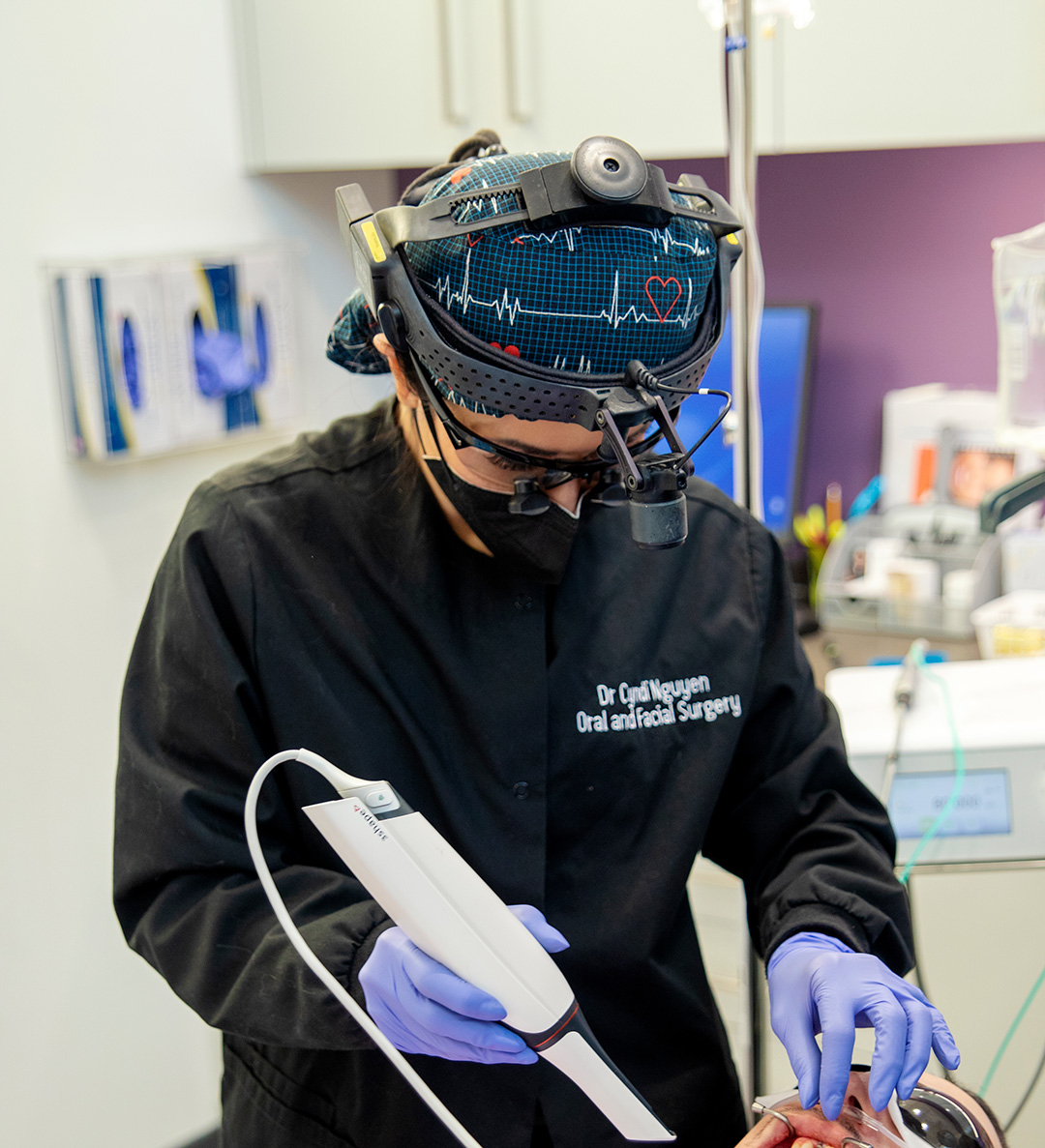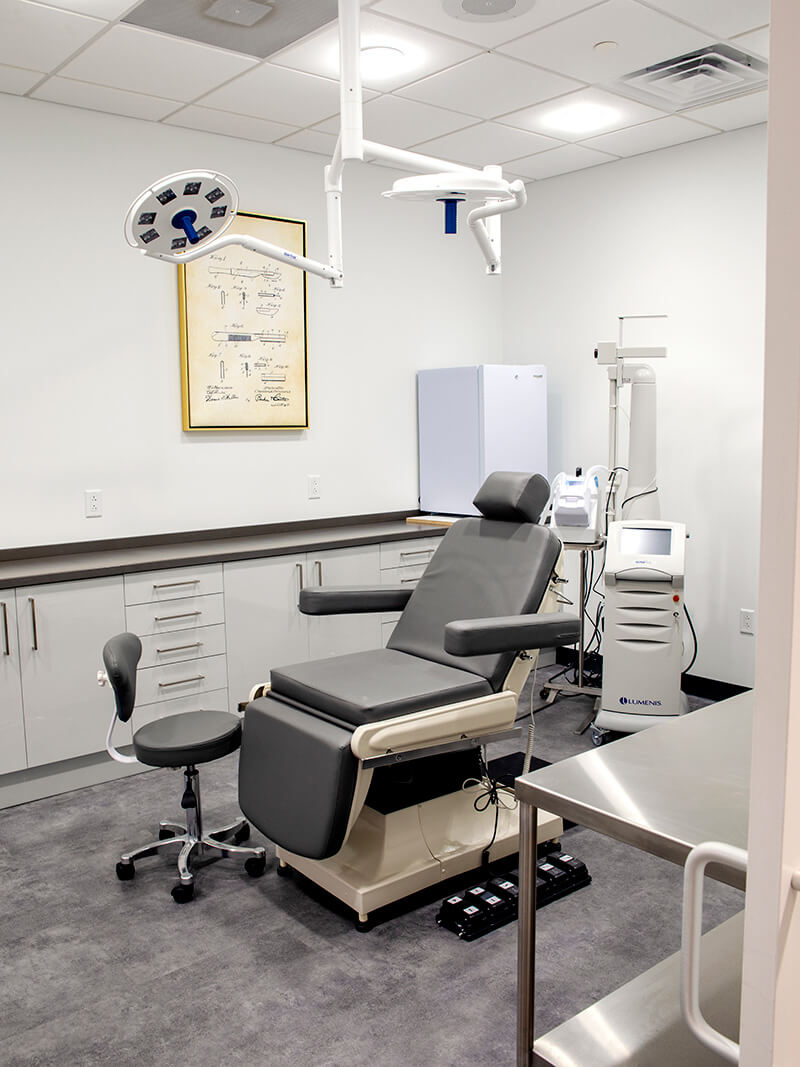
Tooth extraction services involve the removal of a damaged, decayed, or problematic tooth. Our oral surgeon Dr. Nguyen will use anesthesia to numb the area around the tooth and then gently extract it using specialized tools. Tooth extractions can be performed using non-surgical or surgical techniques depending on the complexity of the case.
Non-surgical extractions are usually done on fully erupted teeth and involve using an elevator and forceps to gently remove the tooth. The procedure is quick and performed while the patient is under local anesthetic. Surgical extractions are more complex and involve making an incision in the gum tissue and removing any bone covering the tooth. This technique is used for impacted or severely damaged teeth, such as wisdom teeth.
Non-surgical extractions are generally less expensive and have a shorter recovery time. However, surgical extractions are necessary for more complex cases. Your oral surgeon or dentist will determine which technique is suitable for you based on your individual needs.
There are many situations where tooth extraction may be necessary, including:
If you’re experiencing any of these issues, schedule a consultation with our oral surgeon to determine if a tooth extraction is the right option for you.

The idea of willingly giving up a permanent tooth might make you feel anxious or even sad, but there are situations where tooth extraction can be highly beneficial to your oral and overall health. Tooth extractions can provide several benefits, some of which include:
Before a surgical or non-surgical tooth extraction, you’ll attend an initial consultation with Dr. Nguyen to discuss the extraction and any concerns. During the consultation, Dr. Nguyen will examine your teeth and take X-rays if necessary to determine the best approach. If you’re feeling nervous about the procedure or facing a lengthy procedure, your Philadelphia oral surgeon can prescribe sedation dentistry options as needed.
If you’ve been approved for a tooth extraction service, Dr. Nguyen will administer a local anesthetic to numb the area around the tooth. Once the area is numb, Dr. Nguyen will either perform a surgical or non-surgical extraction procedure. For non-surgical tooth extraction, she’ll use a dental tool called an elevator to loosen the tooth and a pair of forceps to gently rock the tooth back and forth until it comes out. Dr. Nguyen will examine the area to ensure all parts of the tooth have been removed and there are no remaining fragments.
For surgical tooth extraction, Dr. Nguyen will make a small incision in the gum tissue to access the tooth. Any bone that may be covering the tooth will be removed. Next, Dr. Nguyen will use forceps or a dental drill to loosen and remove the tooth from the socket. Stitches may be required to close the incision.
Once your tooth or teeth have been extracted, it’s vital to take proper care of your oral health to prevent pain, infection, and other post-extraction complications. Here’s what Dr. Nguyen will likely suggest for aftercare: